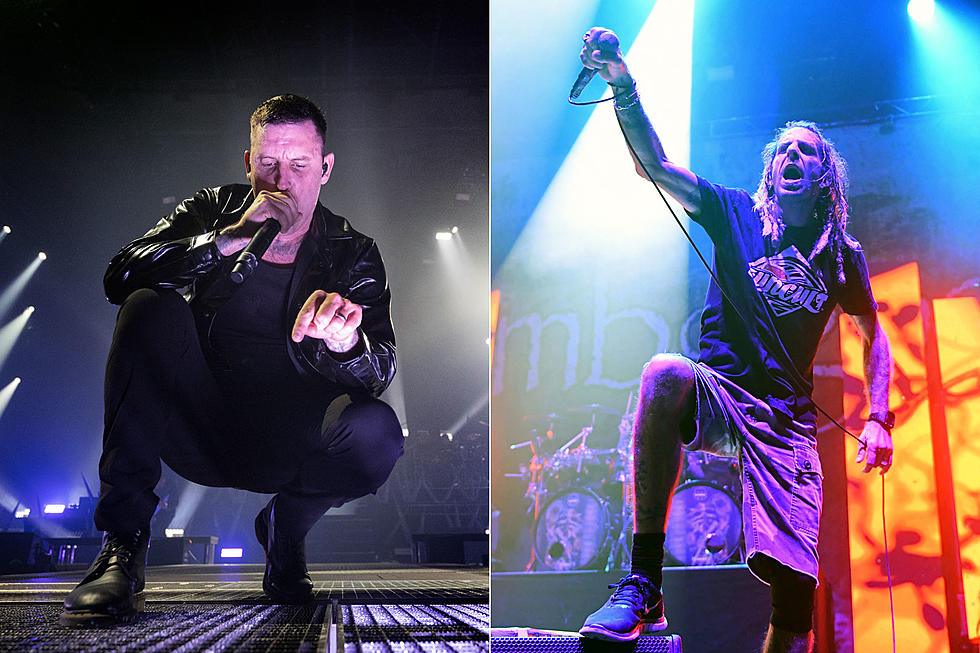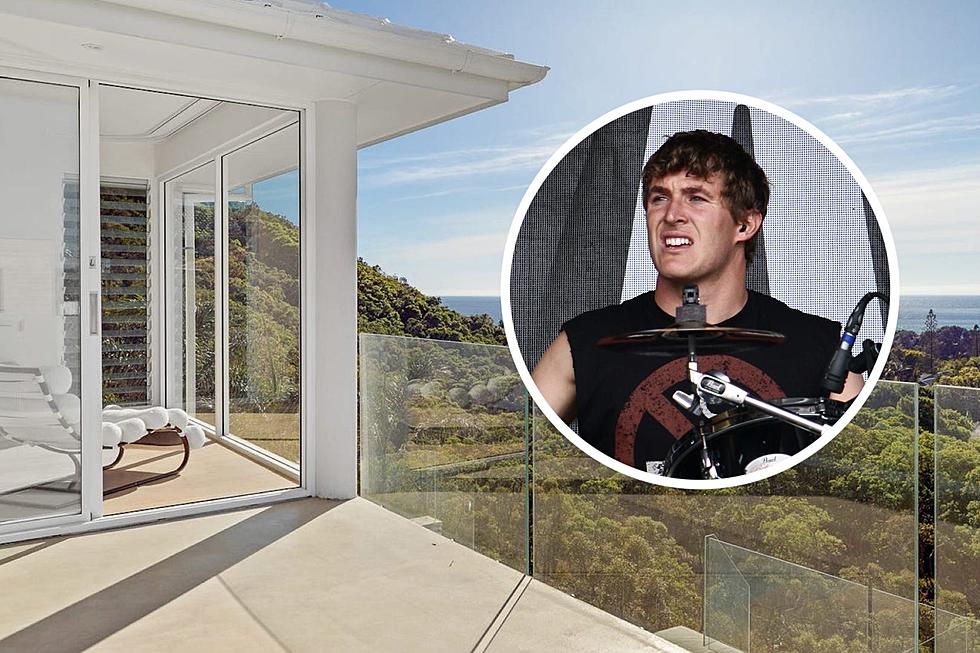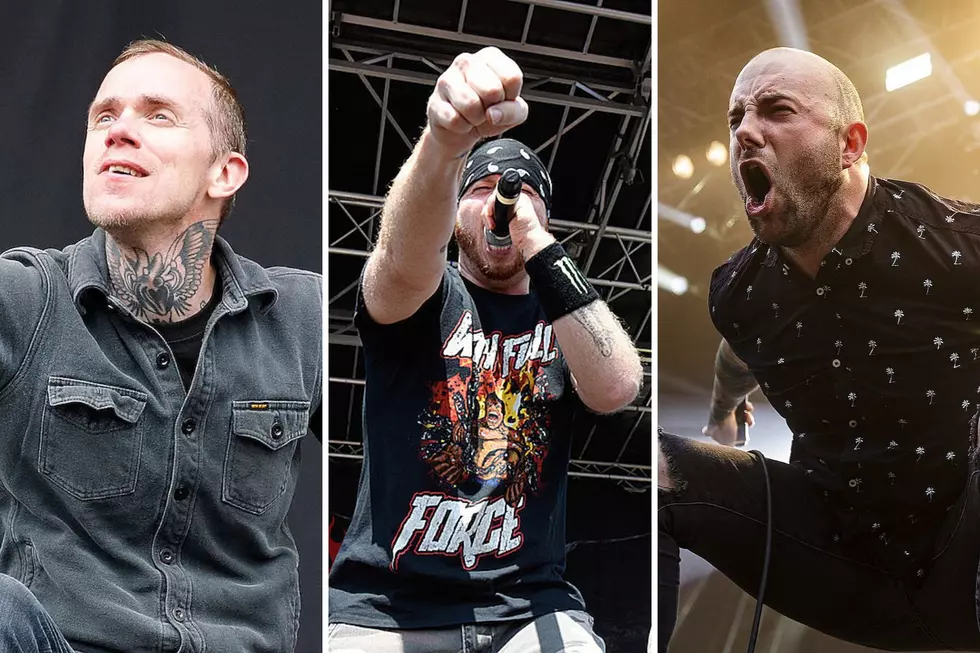
Parkway Drive’s Winston McCall: I’d Rather Be an Underdog Than Over-Hyped
Parkway Drive's Winston McCall was the latest guest on Full Metal Jackie's weekend radio program. The singer discussed the band's newly-released documentary, Viva the Underdogs, which chronicles the Australian metalcore group's unlikely breakout success.
McCall attributes the band's tireless work ethic for getting them this far, explaining the day-to-day activities they engage in as a self-managed group. Of course, it can't all be done alone, which he acknowledges and admits there needs to be a balance of fun and seriousness to prevent burnout.
Despite Parkway Drive playing on some of the biggest states any metal act can play in, the frontman still has the underdog chip on his shoulder, which certainly maintains an edge, both creatively and in an aspirational sense.
Read the complete interview below.
It's so good to see you in person! Over the phone is cool, but face-to-face is better. Growing up, there was the thought that in the future here's going to be flying cars and there's going to be all this stuff. We don't have any of that, but we do have like FaceTime. That's literally the only thing that I think has come true about what we thought was gonna be in the future.
Yeah, it's close. If there's one thing that makes me feel old, it's that kind of communication. We're one step away from having the hologram experience. I'm waiting for next year when Facebook will introduce something like, 'Oh, by the way, there's a virtual reality chat room where you can just stand there with the person on the other side of the world.' No, we don't feel old or anything, huh? [laughs]
So we're here to talk about Viva the Underdogs. It is the banner that you're going to be flying in 2020. In what ways do you still feel like an underdog?
Oh, in every single way. Being from Australia, it automatically throws up a barrier for you to get anywhere with literally the largest oceans on the planet. To be able to leave Australia and try and make your name anywhere in the world is a very, very hard thing to do, let alone within the metal scene and the metal industry and the music industry as a whole.
We've been doing this for 16 years now and look at how things have changed over that time. Being an active band at that time, creating heavy music and putting on a heavy show — you can't rely on anyone but yourselves.
It's not the kind of thing where we've had this massive industry behind us or we've had a massive name. Everything you know about this band has come from us putting it on a stage or putting it on a record and putting it out there. At no point in our career have we been the band that everyone was like, 'Parkway are going to be the ones.'
We've had to grind and work and create and sharpen every single thing about our band to get where we have. It has got us to some amazing places — literally the largest stages for this sound on the planet.
Parkway Drive, Viva the Underdogs Trailer
We've been able to put all of our passion into having it reflect onstage in a way that has zero compromise and that's what this entire thing has been about. That's what this movie stands for because I think if we can do it, anyone can do it and we're still living in a world where people want to say rock is dead and heavy music is not relevant — we're going to look somewhere else for a big, out of this world show or we're going to basically go gonna talk down about a genre of music or a style of music that has millions of people still listening to it, which I think is bull crap. [laughs]
I'm happy to see metal as the underdog of the music industry because I'd rather be the underdog than the over-hyped people.
Parkway Drive is extremely prominent in the contemporary metal scene. What aspects of the beginnings of the band are still core to your spirit today.
Everything. That's one of the most important things for us. With all of the growth that we've had and with everywhere this band has taken us, it's come from the exact same set of ethics that we started with.
We do everything within this band that we are capable of doing ourselves. We're a self-managed band. The creative is run 100 percent through us. The stage design and everything you see there is done by us. The flights are booked by us, the buses are booked by us. It's basically the same core group of people from day one that are running it now. It's just we happen to have a hell of a lot of awesome people working with us to make this thing expand.
As the imagination expands and the palette for what we want to do grows and grows and grows. We get to work with more awesome individuals who basically come on board and help us make these things happen that we sit in hotel rooms and draw on napkins and sketch out ideas for songs with orchestras and choirs or something that we have no idea how to play but we can imagine it. It has just grown in that way.
Everything that we've had in the start still remains the same to the point where we kind of freak out every time we walk up to rehearsal and there's truckloads worth of this gear and 50 people working on a stage which we came up with in our heads while we're sitting in the van and it's just five guys.
We can remember playing in the youth center just the other day and we stand onstage and everything's going off and we kind of ask, 'How the hell did we manage to pull this one off?'
Parkway Drive, Live in 2005 at a Skatepark
That's pretty cool though.
It's a really nice perspective to have. We don't know it any other way. It's not like there's strings being pulled behind the scenes or corporate money flowing into this. That's the thing with all of this kind of music — when a music star goes out of vogue or whatever, it's not like it dies. It might not be given mainstream attention or be part of like the pop culture at that point in time, but it doesn't become irrelevant and at no point in time do these bands' visions becomes something that we see as stagnant or something that can't translate in a contemporary way.
It's fine to see a documentary about a band that was at its peak like 30 or 40 years ago and blew up overnight and sold a billion albums and then imploded in some rock 'n' roll star supernova. But the reality is this band still doing this and it might take 15 years to grind and put together something that will really blow people's minds, but it's still happening and it's still relevant.
Viva the Underdogs shows the silliness of boys in a band against the seriousness of building a career. Talk about what's difficult about balancing those extremes.
What's difficult is realizing when to goof off and when goofing off onstage is actually going to put you in the middle of a fireball. [laughs] It's being able to walk the line of having your head in the right place, to be honest. It does take, dare I say, a degree of professionalism to be able to expand in a way that does justice to a large vision. If you want to really hold the reins on something and really create something yourself, you do have to have your head in the game.
But if you have your head too far in that mindset and you forget to have fun and you forget to communicate with each other, you can burn out pretty quickly. It can be really crushing mentally if you don't take notice of what's actually happening on a human level.
With the amount of grind that you have to do to get to this stage, you can forget to have fun. We've been pretty decent at going, 'Okay, don't be too hard on yourself at the end of the day.' This is what we love doing. We don't put all of this together and we don't write music because the vision is a paycheck or status or anything like that.
From day one, people literally told us, 'You're not going to go anywhere with this.' So to be doing it in year 16 now, you do have to realize that at any point in time, it could be taken away from you. But that's no reason to not put it all on the line and if you know that it could be taken away from you, you try and enjoy every single second of it.
Visually, Viva the Underdogs shows some stunning sequences of the band onstage. What's apparent when you get that perspective of what the audience sees?
For me, it's a big relief [laughs] because it's really, really strange when you work on a concept for a show. It's similar to when you write music in the sense of we are creating something from not only the perspective of what we want to feel but also what we want to convey and how we want people to react.
When you're dealing with the visuals of being in the stage show, you are dealing with not just the sonics of the music that you've written, but how you want those other senses to work in conjunction with it. When you go to a concert, you go because it's not the same as just pressing play and putting your headphones on.
Parkway Drive, "The Void" (Live at Wacken)
It hits you like physically and stings your skin when the fire goes off and it takes you to different places and it makes you feel the music in a very literal sense. So for me, watching the footage back, I'm like, I'm so super analytical and all this stuff, but it's really nice too, to know that like those little sketches you do make and those concepts that, you know, that little kernel that it started from like, I want it to look like this so it will feel like this and sound like this and seeing how it works.
And being able to see it from the front is really nice because the only way that I can kind of gauge it is the looks in people's eyes when the moments happened, the way that we want them to happen. It's really nice to see jaws drop and eyes expand or an entire audience goes silent — exactly how you wanted to translate because it heightens everything about what you're trying to get across about the beard and it's neat to think that you can actually be in a position where you know how to make that work because I'd never thought we'd be here, but it's cool to think that we are.
Winston, musicians metaphorically reveal themselves through music and lyrics. How much more vulnerable do you feel by literally revealing yourself on camera in Viva the Underdogs?
That's an interesting one, huh? It's been really strange because when we started filming for this, we wanted it to be really honest and we wanted to give people — there's [the biopics] Bohemian Rhapsody, Rocketman and you look at those stories and it's insane. It's just insane. It's the kind of thing that blows your mind. But I don't have a reference to that and there's those old stories. So we wanted to give people a modern story of just what it's like to be in a situation that's comparable but completely different.
But we're also like, 'Where's the drama? Where's the drama?' This is fun — what we do is really, really fun and then as soon as we started recording it was literally the hardest year of our lives. [laughs]
There's plenty of times where I've been sitting in that editing suite and we've gone over something and our directors looked at me, going, 'Are you okay with that going in there? Because you sound a bit like asshole.' It's been interesting because at no point of time have I been like, 'no.'
I don't want to hide what I said there. It takes a toll and sometimes I act like asshole and sometimes I act like a 16-year-old kid who can't believe they're actually there. It's the balance of it that I think is that we wanted to get across that this is just real people doing something that happens to every single band that you go and see when you see a metal show.
It's not just this high of being some insane rock star who's up on the stage and then that's all you see. There's a lot that goes in behind it and there's a lot of consequence. Everything we have got, we've gone through a sacrifice of some description and we're able to put that in a context that people can really relate to and understand.
It's just as important as being able to show people all the fire and all of the lights and all of the hard-hitting moments that they love because that's what this is. It's honest. When you strip away the metaphor and imagery and everything like that, this is a release that I don't think you can get from any other type of music. That's the reason it's so big and it connects the audience in such a big way.
So that's what we wanted to try and put on and put that in a visual context so people can not only feel like they're being represented but also they can show to someone else outside of the metal scene and go, 'This is why we love what we love.' And people can go, 'I get that.'
Thanks to Winston McCall for the interview. Follow Parkway Drive on Facebook, Twitter and Instagram and get the 'Viva the Underdogs' soundtrack here. Find out where you can hear Full Metal Jackie's weekend radio show here.
See Parkway Drive in the 66 Best Metal Albums of the Decade: 2010 - 2019
More From Noisecreep










